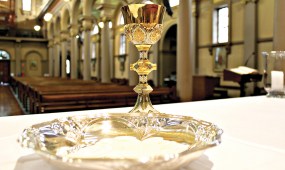Importance of never giving up
Opinion
The richest, and most famous, prize in professional golf arrives every April in Augusta, Georgia.

Bag the US Masters title, as Northern Ireland’s Rory McIlroy did last month, and you’ll walk away with around $6.6 million Australian dollars, not bad for a weekend hit and hike through one of America’s smoothest sporting venues.
However, take away the gold laden plaudits for McIlroy and you’ll find a more human and more relatable story. One of enduring disappointment and yet hope.
McIlroy is 35 years old and when he won the US Open 14 years ago, was touted as his sport’s next big thing, the new Jack Nicklaus, the new Tiger Woods. Pretty quickly he’d won three of golf’s four major titles and only Augusta remained. It was when, not if.
Advertisement
Thirteen times since he has set out at Augusta, nearly always a favourite to win and more cloyingly maybe, always a favourite of the crowd. Which meant that when it came down to it, he buckled time and again, never quite able to see home a lead, talent destabilised by nerves and the goodwill all around him.
We thought he’d never do it, he thought he’d never do it, until last month when he again threw away a hefty lead – but this time recovered to eventually see off his pal Justin Rose by just one shot. At Augusta, that most prim and stately of golfing institutions, the crowd went nuts. Who knows what McIlroy was feeling but he looked done in, relief more than ecstasy probably the core emotion.
Which is why his army of followers on the course and on sofas around the world will relate to him in a way that has no obvious logic or compulsion. We like Rory, and people like him, because they remind us of our own failures and frailties and of our hopes that often disappoint but occasionally come through.
It’s why, when it boils down to it, sport is not so much a metaphor for life but is life.
Stories on hope and the ability of sport to unite people and society will be to the fore of the Jubilee of Sport in Rome on June 14-15. Organised by the Dicastery for Culture and Education, it will be attended by high-level international athletes (Olympic and Paralympic) with the Piazza del Popolo to be transformed into a lively and inclusive sports village.
McIlroy will not be there but his story is worth reflecting on. From the religiously torn Ulster, he was brought up Catholic yet has manifested a cross-community appeal similar to another famous Irish sportsman, the Republic of Ireland’s Barry McGuigan. A boxing world champion and another Catholic, McGuigan is loved not only for his triumphs and failures but for common decency when everything went against him, often insanely so. It’s sport, but again, it’s also life.
There are others who have never given up, who we loved for their brave failure, yet who in the end turned out to be the biggest of winners. The Croatian tennis player Goran Ivanisevic is a classic of this genre.
A three-time loser in Wimbledon singles finals – mostly notably in 1992 when he choked against a young Andre Agassi (renowned for his strong non-denominational Christian faith) – the thought of winning tennis’s greatest prize ate away at him for years until he finally managed it in 2001 against a fellow Catholic, Australia’s Pat Rafter.
Advertisement
‘Will you become more religious after today?’ Ivanisevic was asked post match.
“Why should I?” he replied. “I believe in God and he helped me.”
The Croat never shouted his faith from the rooftops but it was there. Years later, in 2023, he coached the world’s top player Novak Djokovic at a January tournament in Adelaide.
After his routine press conference one night at the South Australian event, Djokovic said he was heading out but without disclosing where. We found out the next day that he had taken a car to Port Road where he’d seen in the Serbian New Year at Woodville’s ornate Orthodox Church. Facebook the next day revealed him as just another member of the congregation, standing in a plain white shirt and politely observing the celebrations. It mattered to him. A few days later he won the Adelaide tournament and a few weeks later won the Australian Open.
We don’t know if there was a direct link between his church attendance and championship wins but he was happy to talk about his trip to Woodville and came across as calm and grounded all week.
Sport and religion have not always been the best of bedfellows though. Perhaps the most famous, and notorious, of religious sporting divides comes in Scotland’s biggest city. Glasgow boasts both the Catholic-buoyed team Celtic and its Protestant opposite Rangers. Support has long morphed into fervour into fanaticism on both sides and bigotry has been endemic. For years players had to be the right religion to turn out for either side and while pragmatism has ensured this no longer applies, fans still unthinkingly support the team of their religion. When I visited the Rangers home ground Ibrox about 35 years ago, ‘King Billy’ T-shirts and Protestant battle march cassettes were on sale outside pre match. It was no less pointed a few weeks later when I went to a Celtic match, a vast Irish tricolour flag fluttering in the stands, this at a time of much British mainland bombing by the IRA.
Scotland also provides perhaps the most famous clash of sport and religion and at the highest level too, the Olympic Games. Eric Liddell, as immortalised in the Oscar winning Chariots of Fire film (which will be screened under the stars at the Piazza di San Cosimato – Trastevere as part of the Jubilee of Sport) was a devout Christian who famously refused to run in his 100 metre heat at the 1924 Paris Olympics as it was scheduled for a Sunday. Not to be undone, he switched to the less familiar 400 metre competition which he then won as a rank outsider.
It was in many ways principle before purpose, yet the successful outcome came down to intransigent faith in his running ability and in his religious conviction.
Such examples are everywhere, with Olympians (for no apparent reason) seemingly more high profile than other sports.
Carl Lewis, who with nine Olympic gold medals was arguably the greatest athlete of the 20th century, has often talked about his Christian faith and its importance to him.
Likewise, America’s Caleb Dressel and Great Britain’s Adam Peaty, titans of the swimming pool in recent Olympics, have both spoken of the importance of Christianity to them.
Peaty became a Christian in 2022 following a bad foot injury and began attending church regularly. This new routine “felt like the missing part of the puzzle,” he said and to endorse the sentiment has a large cross tattooed across his abdomen accompanied by the words ‘Into the Light’.
We don’t all need to go that far, and its far from foolproof, but put aside the medals and there’s a lot we can learn from sport.






